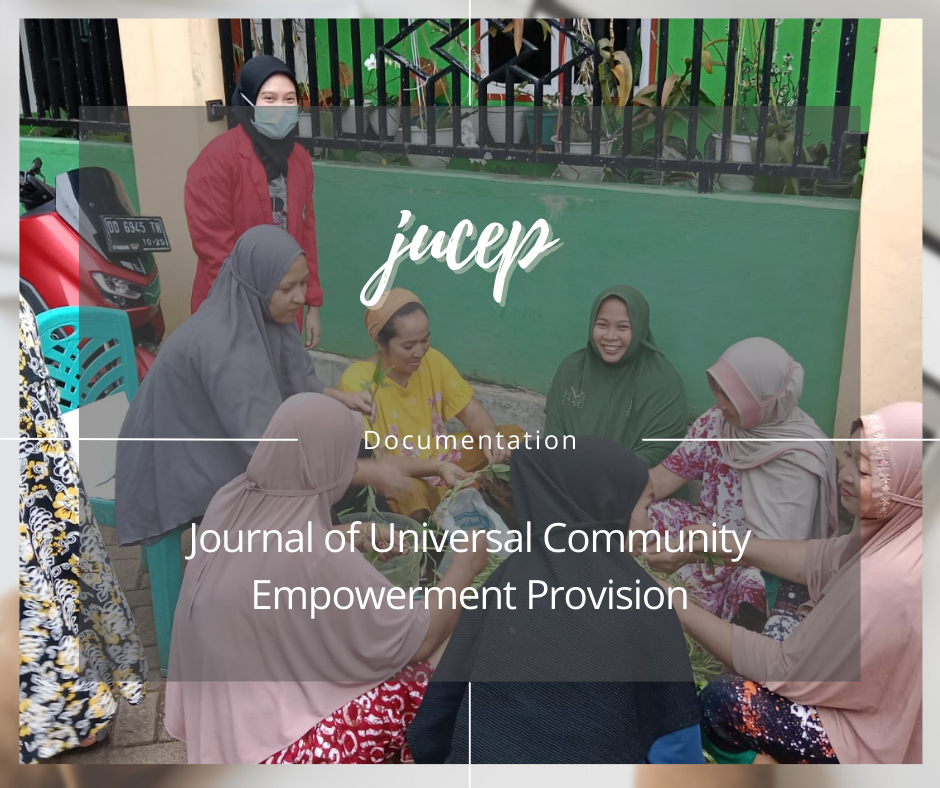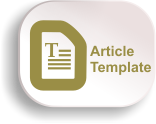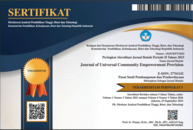Participation of Women Farmers Group Members to Sustainable Food House Area Program (Case Study of Tamalanrea District, Makassar City, South Sulawesi Province)
DOI:
https://doi.org/10.55885/jucep.v2i1.133Keywords:
Participation, Sustainable Food House Area, Members of Women Farmers GroupAbstract
Makassar City has implemented the KRPL (Sustainable Food House Area) Program as a flagship program as an effort to develop and fulfill food needs in Makassar. The Makassar City Government itself has started from 2017 to 2019 by developing in 15 sub-districts in Makassar City. In the Tamalanrea sub-district itself, there are 4 groups of women farmers who are implementing the KRPL program both in the growth and development period. In implementing the program, the community is an important element in which motivation plays an important role for the sustainability of the program. The purpose of this research is to determine the level of participation members women's farmer groups. The data analysis method used is descriptive quantitative, namely the research method used to analyze data in the form of numbers by describing or describing the collected data as they are. To determine the level of participation of members women's farmer group used score analysis and will be classified into categories based on the score interval. The results of this research conclude that the participation rate of members of the Women Farmers Group, Tamalanrea District, Makassar City is in the medium category with an average total score of 40.54 with persentage 67.57%References
Badan Pusat Statistik. 2019. Kota Makassar dalam Angka 2019. Makassar, Sulawesi Selatan.
Balitbang Pertanian, 2013. Pengembangan Kawasan Rumah Pangan Lestari. Jakarta: Badan Penelitian dan Pengembangan Pertanian, Kementerian Pertanian.
Bwambale, N. (2015). Farmers' knowledge, perceptions, and socioeconomic factors influencing decision making for integrated soil fertility management practices in Masaka and Rakai districts, central Uganda (Doctoral dissertation, Iowa State University).
Cohen & Uphoff. (1977). Rural Development Participation. New York: Cornel University.Keputusan Menteri Pertanian Nomor 62/Kpts/RC.110/J/12/2017 tentang Petunjuk Teknis Optimalisasi Pemanfaatan Lahan Pekarangan Melalui Kawasan Rumah Pangan Lestari (KRPL) Tahun 2018.
Koech, B. K. (2014).Contribution of women groups in the economic empowerment of rural women: a case of women groups in Bureti Constituency, Kericho County, Kenya(Doctoral dissertation, University of Nairobi).
Kurniawan, M. A, Soemarmo, Purnomo, M. (2015). Partisipasi Masyarakat Dalam Pengelolaan Lingkungan Hidup di Desa Mojokrapak, Kecamatan Tembelang, Jombang. J-PAL. 6(2): hal.89-98.
Nurjannah, R, Yulida, R, Sayamar, E. (2015). Tingkat Partisipasi Anggota Kelompok Wanita Tani dalam Program Model Kawasan Rumah Pangan Lestari (M-KRPL) di Desa Tualang Kecamatan Tualang Kabupaten Siak. JOM Faperta. 2(1).
Rodliyah. (2013). Partisipasi Masyarakat dalam Pengambilan Keputusan dan Perencanaan di Sekolah. Yogyakarta: Pustaka Pelajar.
Sagwal, S. S. (2020).Forest Nursery: How to Raise and Manage. Scientific Publishers.Turindra, A. (2009). Pengertian Partisipasi. Turindra Corporation Indonesia
Vlek, P. L. (1990). The role of fertilizers in sustaining agriculture in sub-Saharan Africa.Fertilizer research,26(1), 327-339.

Downloads
Published
How to Cite
Issue
Section
License
Copyright (c) 2022 Journal of Universal Community Empowerment Provision

This work is licensed under a Creative Commons Attribution-ShareAlike 4.0 International License.















